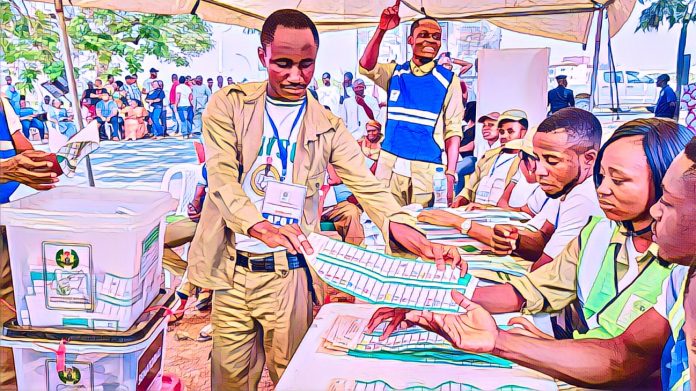Key points
-
Nigeria has spent N981.5bn on elections since 1999.
-
Election costs rise, but credibility keeps falling.
-
2027 polls may gulp up to N700bn.
Since the return to civil rule in 1999, Nigeria has held seven general elections, spending about N981.5 billion ($5.48 billion).
Despite being Africa’s most populous country and a growing democracy hub, Nigeria now ranks among the nations with the most expensive elections worldwide.
In 1999, the transitional military government reportedly spent N32 billion ($1.46 billion) on the polls that ushered in President Olusegun Obasanjo.
That vote, though costly in dollar terms, was largely accepted and produced only two petitions. But since then, costs have soared and disputes have multiplied.
By 2023, the Independent National Electoral Commission (INEC) spent N355.3 billion ($815.5 million) on the polls. That election generated 1,996 petitions — the highest in history.
Rising costs, declining credibility
Election budgets have ballooned with each cycle:
-
2003: N55.2bn ($484m) with 560 petitions
-
2007: N74.2bn ($618m) with 1,290 petitions
-
2011: N99.7bn ($665m) with 732 petitions
-
2015: N122.9bn ($647m) with 560 petitions
-
2019: N242.2bn ($794m) with 1,697 petitions
-
2023: N355.3bn ($815m) with 1,996 petitions
That makes a total of 6,840 petitions across seven elections, despite record spending.
Observers say Nigeria’s elections are now more expensive than those of Kenya, South Africa, Ghana, and even Pakistan.
Only the United States, with its $15.9 billion 2024 polls, spent more in absolute terms.
Critics argue that corruption, voter manipulation, and destruction of electoral materials drive costs higher without improving credibility.
Continuous voter registration, replacement of damaged equipment, and logistics across Nigeria’s vast terrain also push budgets up.
INEC defends rising budgets
INEC Chairman Mahmood Yakubu has consistently defended the commission’s requests. For 2025, INEC sought N126 billion to prepare for the 2027 elections.
The National Assembly eventually approved N140 billion, citing rising personnel costs, continuous voter registration, and the replacement of damaged machines such as the Bimodal Voter Accreditation System (BVAS).
Yakubu also defended a supplementary N18 billion budget in 2023, saying it covered staff allowances, outstanding bye-elections, and off-cycle governorship polls in Bayelsa, Imo, and Kogi states.
He maintained that INEC remains underfunded and requires stronger budget support to run credible elections.
More money, more problems
Despite rising allocations, Nigeria’s elections continue to suffer credibility setbacks.
Common issues include ballot snatching, vote buying, forged results, and failure to transmit results in real time.
Analysts warn that if the trend continues, the 2027 general election could cost up to N700 billion — with no guarantee of better outcomes.



